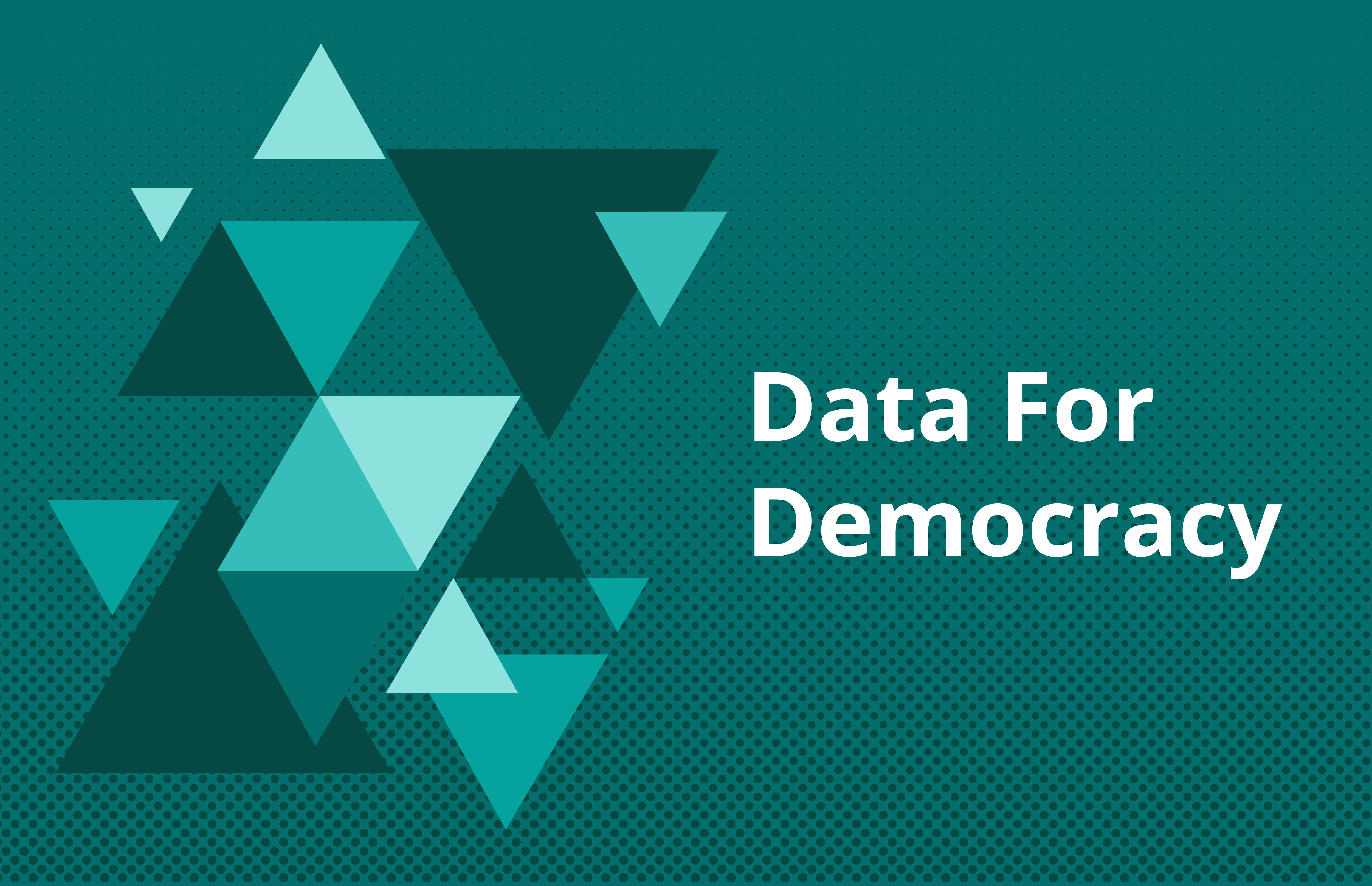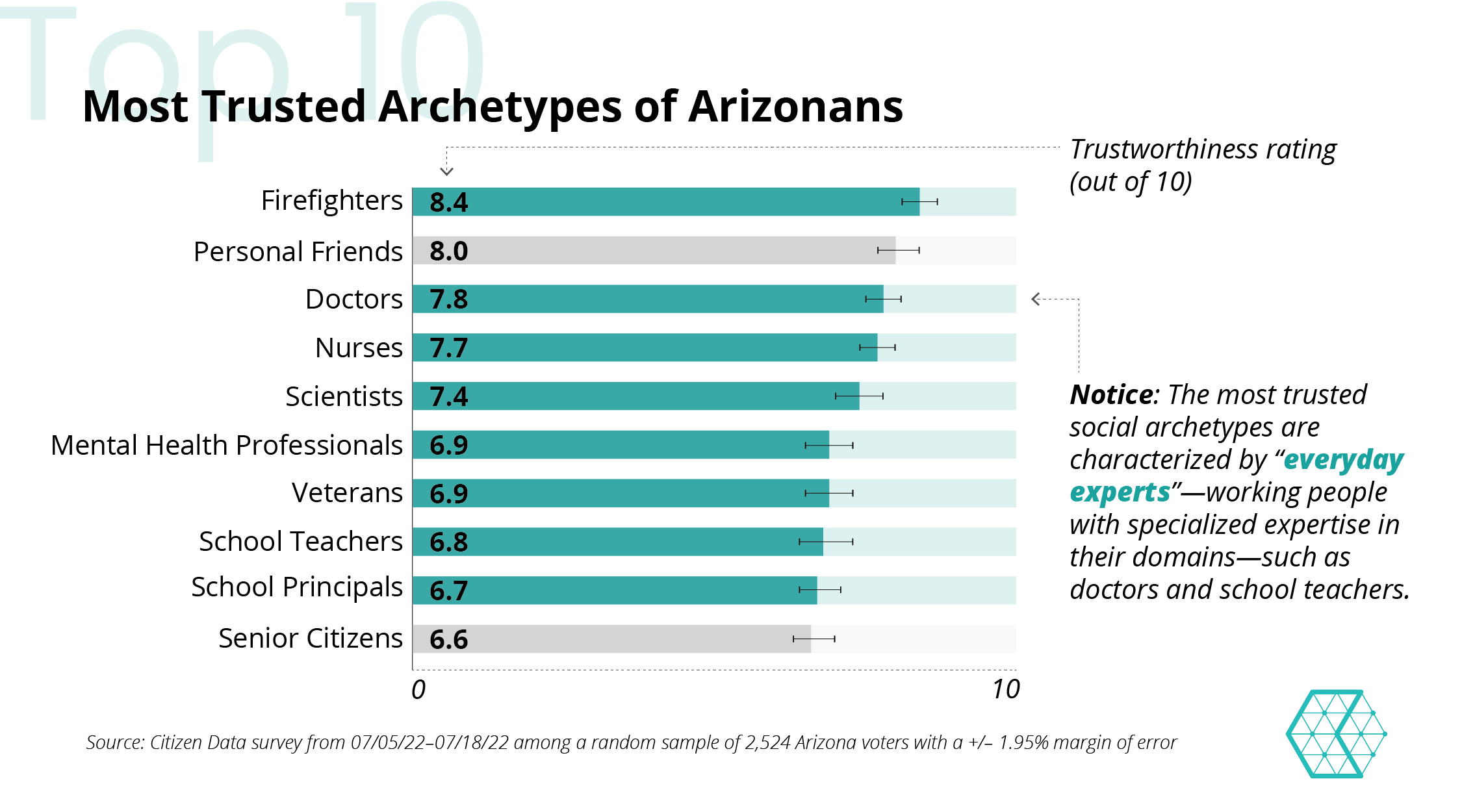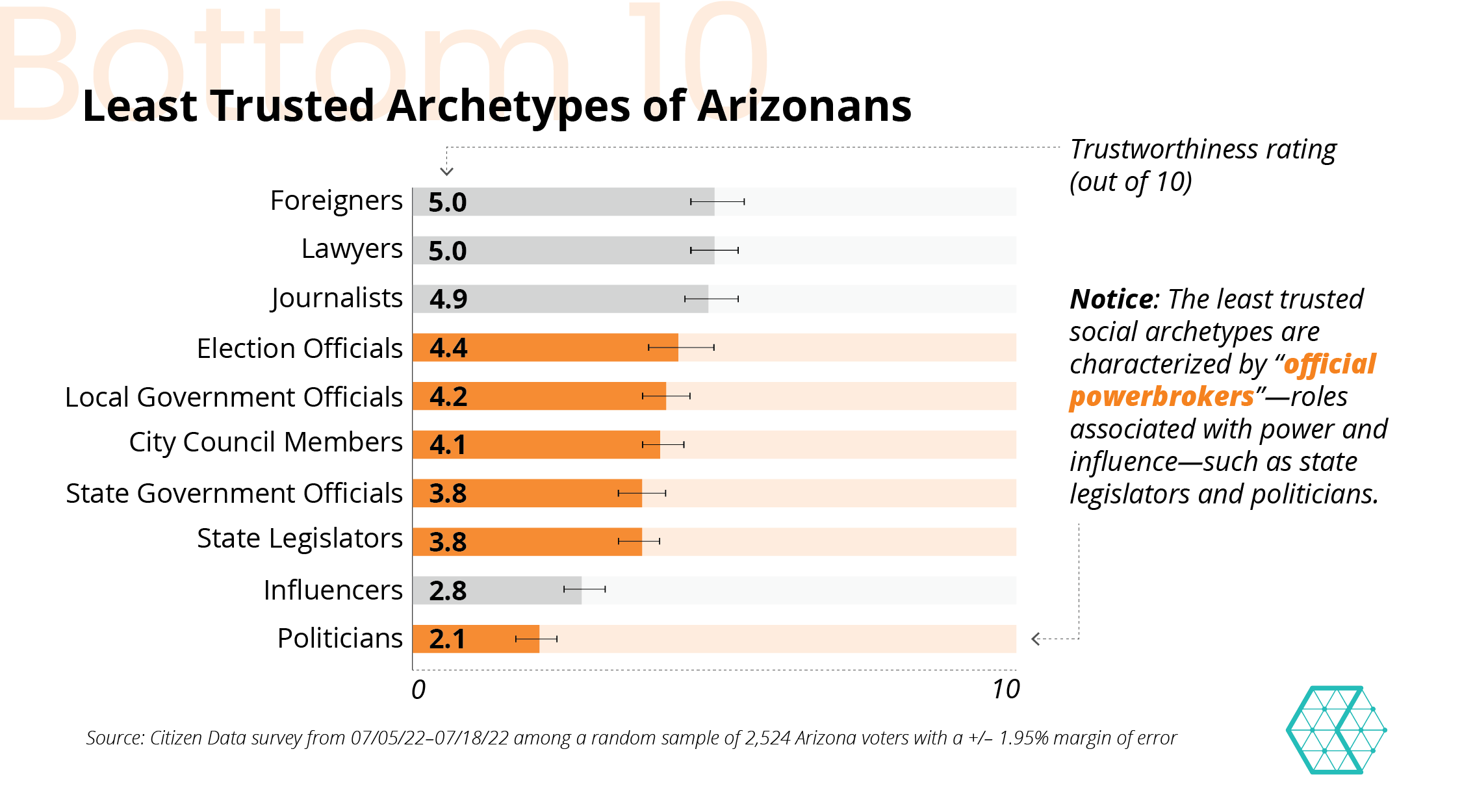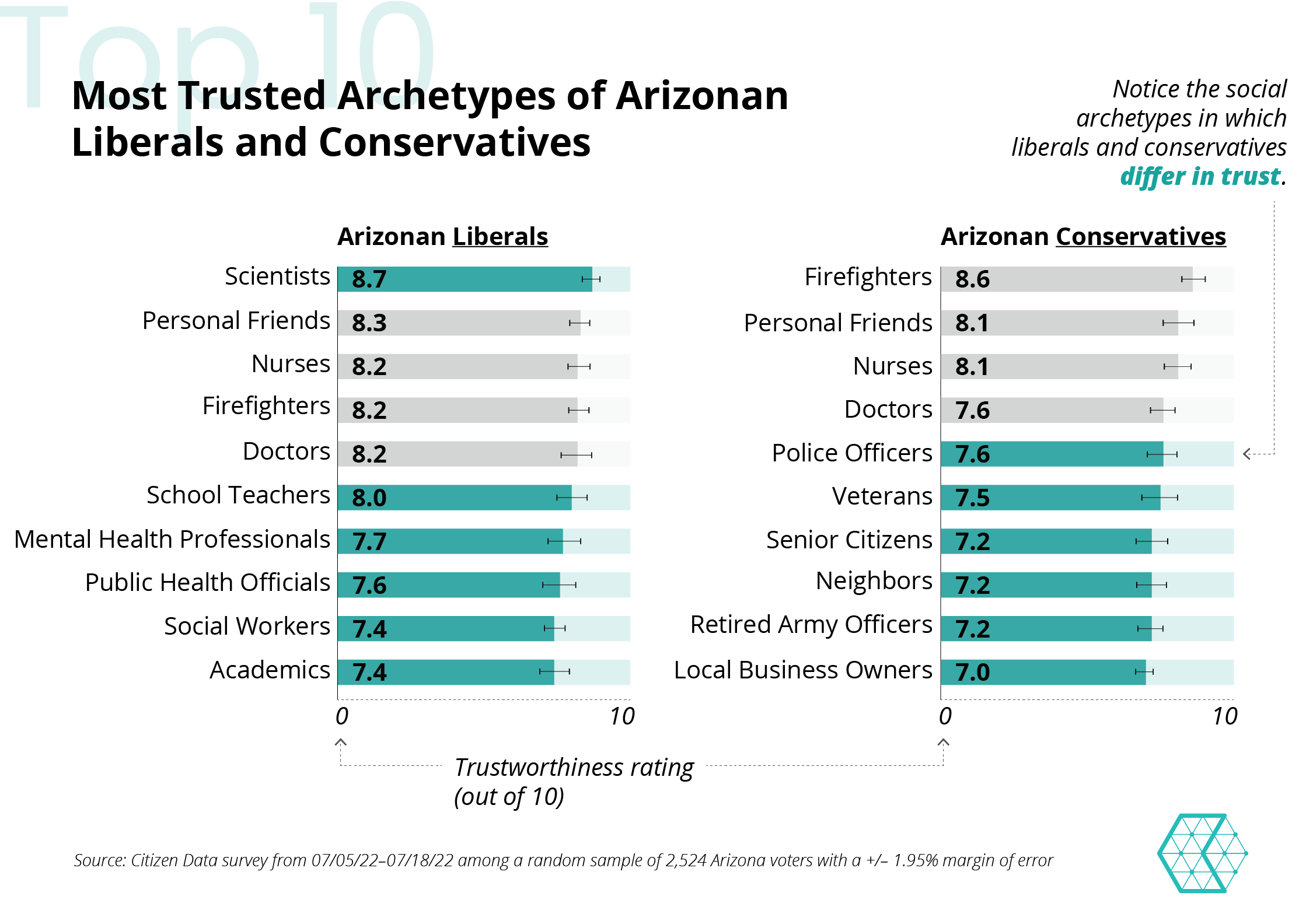Enhancing Election Trust August 7, 2022
We recently wrote about the importance of trusted messengers for countering election-related disinformation. Since then, we’ve set out to better understand which types of people Americans trust most.

Our recent Arizona-specific data indicates that some messengers can bridge divides.
1. Everyone Loves Firefighters
Using a large random sample of Arizona voters, we asked respondents to evaluate a selection of social role “archetypes” on different dimensions of trust.
We measured dimensions like trustworthiness, perceived power, and things in common. Respondents were asked to rate these attributes on a scale of 1 to 10. The most trusted, respected, and relatable archetype according to Arizona voters? Firefighters.
Share this report

Beyond firefighters, we saw that other “everyday experts” seemed to rate highly across different dimensions of trust. These findings speak to a broader truth that trust is a function of both perceived authority as well as relatability.
2. Nobody Likes Politicians
We found the least-trusted social roles are associated with archetypes who have power and influence.
“Politicians” and “lawyers” rank poorly, whereas government-related social roles — and even local government roles — rank at the bottom.

Interestingly, “election clerks” do not engender similar levels of distrust as others in local government, falling into the middle of the pack.
It’s important to note that Arizonans’ skepticism towards state officials — and state-level elections officials — may be influenced by the State Senate’s partisan recount of the 2020 election results in Maricopa County.
3. Unpacking Trust Differences Across Ideology
While both liberals and conservatives seem to place high trust in “everyday experts,” there are some important differences depending on the experts’ domain.

Differences also abound for least-trusted roles. Conservative distrust of journalists and university students was high, while Liberals rated police officers and athletes as least trustworthy.
Data-in-Action
When it comes to finding trusted messengers for countering election disinformation, judge your “everyday experts” on these three traits:
- Domain Expertise/Authority: a doctor or scientist, rather than an influencer
- Relatability: think nurse, as opposed to an athlete
- Proximity: a local election administration official is better than a state figure
Finding those with domain expertise, yet without potentially negative connotations of power, is key for your message to truly resonate with its audience.
If you have any questions don’t hesitate to reach out. Enjoy Citizen’s Data for Democracy series? You can find past installments here.
Political Division & Third Lane Politics
Citizen’s latest research — a nationwide survey of 2,105 registered voters — explores how to transcend Republican/Democrat political divides with valuable messaging context.
